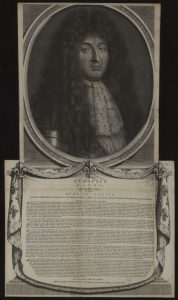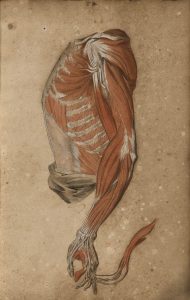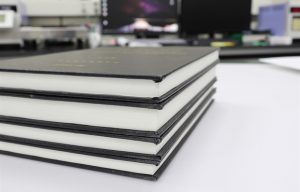 ~This story is courtesy Jenny Blair and Yale Medicine.
~This story is courtesy Jenny Blair and Yale Medicine.
In the spring of 1952, Jocelyn Malkin, M.D. ’52, completed her student thesis on laryngeal cancer. Using punch cards, Malkin encoded clinical characteristics of 235 patients suffering from the malignancy, including race, religion, family history, and “excessive voice use.” She then threaded the cards onto a sorter shaped like an ice pick, looking for clear-cut risk factors. One stood out starkly: tobacco use.
After seeing her own thesis results, Malkin recalls, she “nagged” her husband to quit his cigarette habit. Later, as a psychoanalytic institute leader in Washington, D.C., she refused to allow light-ups in meetings.
“Everybody smoked—it was considered very, very cool,” she says. “I was very unpopular because I made a fuss about it.” Thanks to her thesis, Malkin was far ahead of her time. Not until 1957 did the U.S. Surgeon General issue its first report on the health consequences of smoking. Tobacco use is now known to be the most important laryngeal-cancer risk factor.
Malkin’s historic typewritten thesis is freely available online, along with hundreds of other newly digitized Yale medical student theses. Although hard copies of most recent and many older theses are available to peruse in the medical library, digitization and open access means a much larger audience.
“What we’re doing now just opens them up to the world,” says Melissa Grafe, Ph.D., the John R. Bumstead Librarian for Medical History at the Cushing/Whitney Medical Library.
The world has responded. Over 80,000 downloads of Yale medical student theses have taken place by readers in 187 countries, over half at educational or governmental facilities. The theses are available at both the Medical Heritage Library, an online consortium of major medical libraries that digitizes materials and makes them freely available via Internet Archive, and from Yale’s in-house repository, Eli Scholar.
With the first evidence of a thesis requirement appearing in an 1839 catalog, the Yale School of Medicine is perhaps the longest-lived such directive of its kind. Many theses go on to be edited and published in medical journals, but many others have long languished on shelves, largely unread.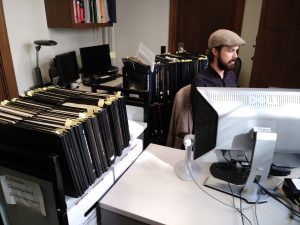
Digitization has been underway since 2002, when the medical library and the YSM Office of Student Research placed some of that year’s theses online as part of the Yale Medicine Thesis Digital Library project. Four years later, submitting a digital copy became mandatory of all students. Living alumni were first invited to participate in 2012, and the project has rolled along since then via outreach at alumni events.
But in 2017, a grant to Yale University Library by the Arcadia Fund, one intended to preserve at-risk cultural materials, made it possible to digitize many more.
On July 12, 2017, John Gallagher, director of the Medical Library, with the assistance of Deborah Jagielow, director of Alumni Affairs, emailed some 3,000 alumni from the Class of 2009 and before, inviting them to participate. Within five hours, close to 400 replies had come in granting permission. Eventually, nearly 1,200 alumni agreed to allow digitization, including the families of four who had died.
Grafe and her colleagues then packed up 51 boxes of hard-copy theses and mailed them to Princeton, New Jersey, where, over October, November, and December, the Internet Archive scanned them in (and then mailed them back). Yale library staff then embarked on a quality-control check, making sure all the scans were legible and the data attached to each thesis were accurate.
“Even though it was a short timeline, it was a careful process,” Grafe says. “We wanted to make sure that the alumni who entrusted us with digitizing their material were happy with what they saw [and] received something they could share.”
Topics trend over time, she adds.
“In the late 80s and early 90s, I saw a batch of theses having to do with HIV and AIDS, and in recent years there’s been some global health emphasis,” she says. By contrast, in the 1960s and 70s, patient care and community health were popular.
A quick browse turns up theses on West Nile myeloencephalitis (1955), fetal electrocardiography (1957), cross-cultural psychiatry (1966), concentration camp survivors’ guilt (1971), health care for migrant farmworkers (1975), athletics in hemophilia (1980), detective fiction (1980), children’s fear of needles (1982), childbirth in literature (1987), professional courtesy (1996), and spirituality in HIV care (2001).
There are also many 19th-century theses in elaborate copperplate handwriting, including “On Diabetes Mellitus,” “On Gonorrhea,” and “On The Therapeutic Application of Ice.”
Everything is faithfully preserved as a PDF, including linen-bound covers, blank pages, and librarians’ penciled notations on title pages. Malkin’s includes a copy of the cards she used, notched with their telltale punch-outs. So far, it has been downloaded 50 times.
The digitization project is ongoing. Though theses written prior to 1923 are in the public domain, the library continues to seek permission from alumni or living relatives for any written after that. Interested alumni can fill out an online form.






 ~This story is courtesy Jenny Blair and
~This story is courtesy Jenny Blair and 
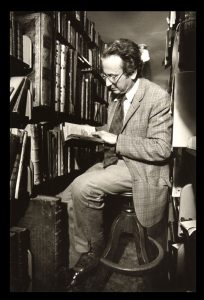 ~This post is courtesy Melissa Grafe, Head of the Harvey Cushing/John Hay Whitney Medical Historical Library at Yale University.
~This post is courtesy Melissa Grafe, Head of the Harvey Cushing/John Hay Whitney Medical Historical Library at Yale University.
